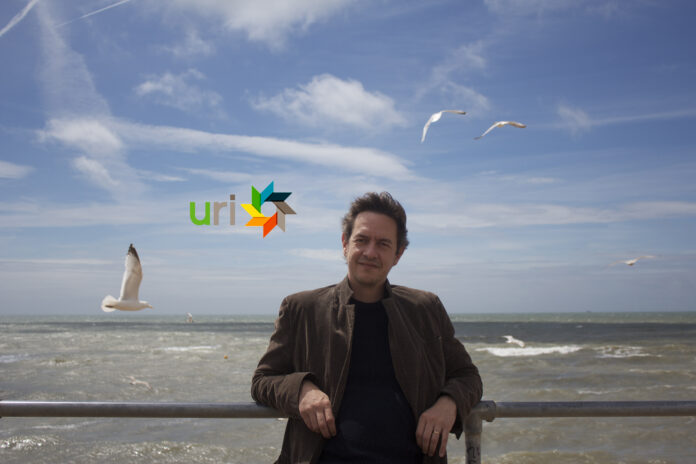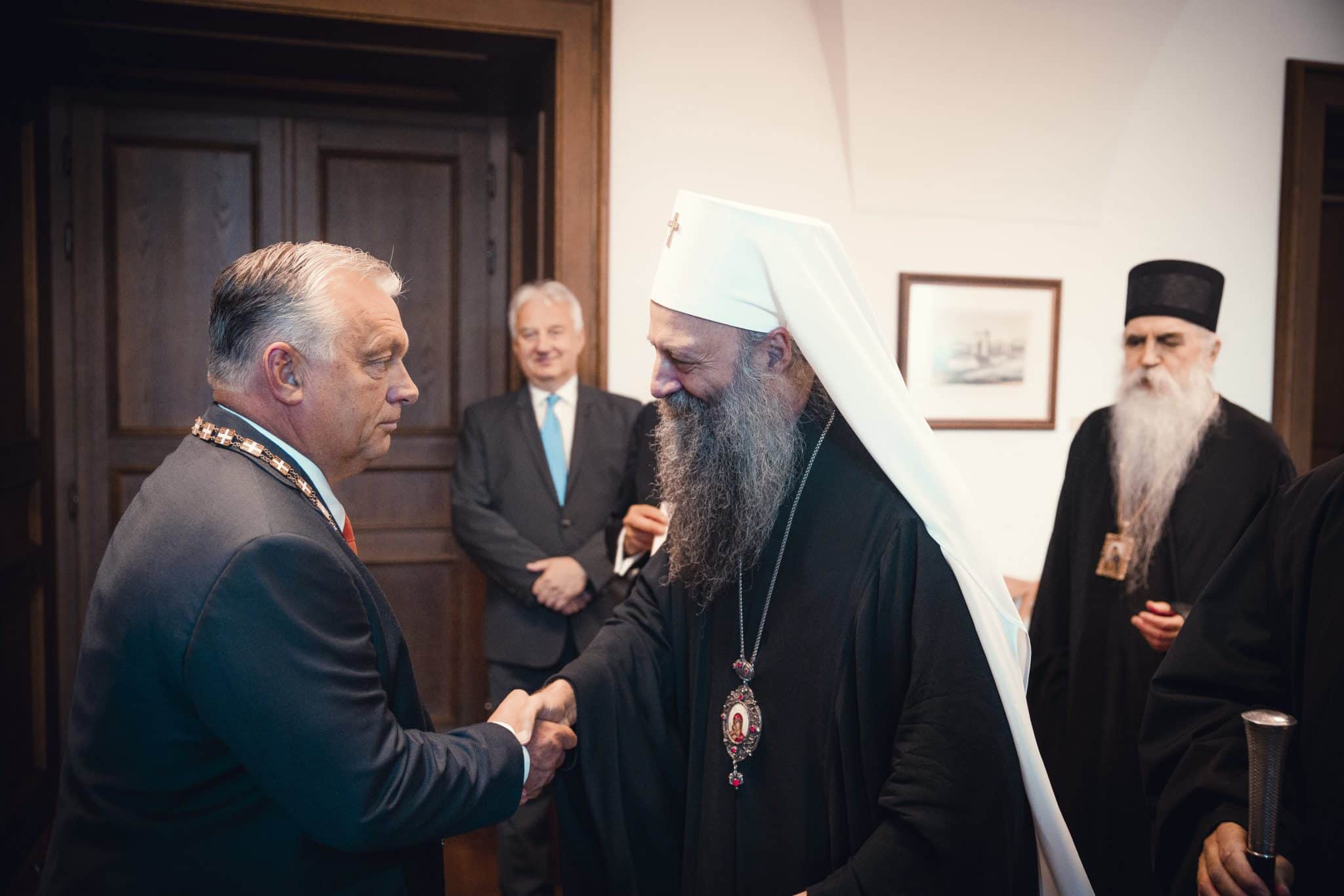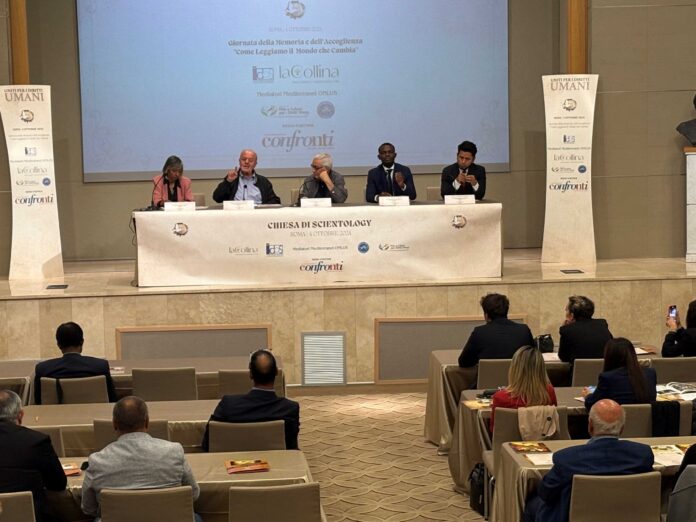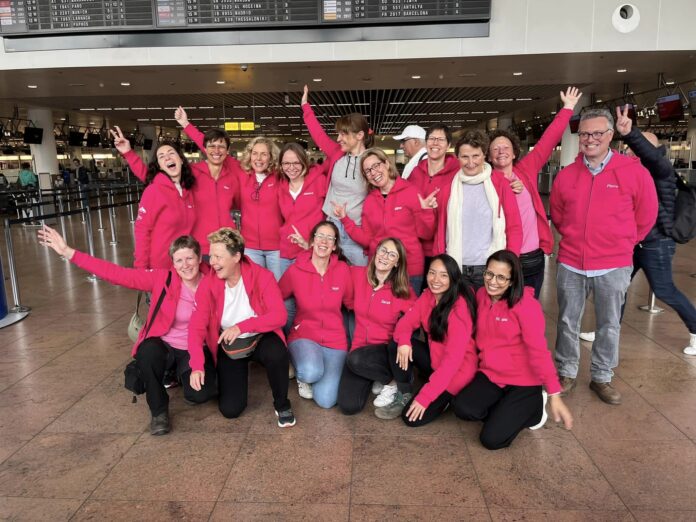URI is known as the largest international grassroots interfaith cooperation organization in the world. It brings people of all faiths together in more than 100 countries on all continents. We had the opportunity to interview Eric Roux, its newly elected Chair.
In a world like ours, where conflicts are increasingly covering the face of the earth, and where religions have failed to prevent it, if not contributed to it, why would interfaith matter?
I wouldn’t say that “religions failed” more than “governments failed” or “the UN failed”, “the OSCE failed”, etc. In fact, if you want to put the blame on someone, you should say that we, as humanity, have failed until now to prevent wars and conflicts. None of us can exclude ourselves from the responsibility of our world. But blame does not solve anything. Many people think of interfaith as an activity where some people from two or three mainstream religions meet and come out with a wishy-washy statement calling for world peace. That’s not what it is.
We, at URI, do interfaith cooperation. That means that we bring people together, from different faiths, the more inclusive the better, and we make sure that we work together toward a specific purpose. So let’s say that your interfaith cooperation group is working on environmental issues. Their primary focus will be to be efficient in that field. But one immediate side effect will be that they will have to share the space with their fellows from other religions, to share the same reality of their mission, and to communicate together to accomplish their goals. The result will be that they will understand each other, will become friends, and that itself contribute to a more peaceful world. Of course, it’s all about the scope and size of these activities. It requires a lot, a huge lot of cooperation to have a noticeable effect at global level.
So, how does it work, concretely?
In URI, it’s the grassroots which leads the effort. We have more than 1,200 groups on the ground, all over the world, which we call “cooperation circles”. They are composed of people of different religions or spiritual traditions, who have decided to work together to create a positive impact in specific fields. Some are engaged in the restoration of the environment and the preservation of the Earth from the consequences of the climate change. Some will focus on the prevention of religiously motivated violence and organize healing sessions between communities at odd to create communication between them. Some are focusing on artistic performances that bring together people who otherwise would never learn from each other. Some are working against the proliferation of nuclear weapons, along with the UN. Others will dedicate themselves to protect the rights of indigenous communities when their spiritual traditions are endangered by bigotry and vested interests. As well as dozens of other topics or sub-topics. But at the end of the day they all contribute to the purpose of URI, which is to promote enduring, daily interfaith cooperation, to end religiously motivated violence and to create cultures of peace, justice, and healing for the Earth and all living beings.
And how would you describe the difference between URI and other interfaith organizations?
It’s the grassroots component which really makes the difference. Several big interfaith organizations put the stress on religious leaders, mainly from the big religious organizations. While bringing aboard religious leaders is important, we believe that to really create a broad impact, you need to give a chance to everyone to contribute. And you can be surprised by some people of faith or not who don’t hold any title, and are not religious leaders, and can in fact be leaders in their community when it comes to advancing the good. It’s not that we criticize other international interfaith organizations, as we are partners and they do a great and crucial job, but ours is a vital complement to it. Both is necessary: religious leaders, and individuals who want to dedicate their life, or part of their life, to bring about a better world where people of all faiths or none can live together in harmony. I am not saying we are the only ones to do that, but that’s what makes us special, as an large international organization.
In fact, the board of trustees in URI is made of people who are grassroots interfaith activists, from all regions of the globe. They are elected by the cooperation circles themselves, among themselves. It’s not top-down, it’s bottom-up, and finally circling in a virtuous way. Those who know the difficulties on the ground are those who will help URI defining its strategy to overcome the challenges. They are helped and supported by a staff made of people who are super-dedicated to interfaith and to the purpose of URI. Being a staff in URI, whether you are the Executive Director, a Senior Director, a regional coordinator or any other post, is not a normal job. It’s a mission, a peace-making mission which is led by people who are heart and soul for fostering understanding and collaboration between people of all faiths and spiritual traditions.
Sorry to ask a provocative question, but do you really believe that an organization like URI is able to bring peace on Earth, end religiously motivated violence and bring justice to all living beings?
You know, the bad behaviors behind wars and violence are contagious. But so are positive behaviors. Most of the people are interested in living their life in harmony with others. Very few are those who really love war. When they see examples of good behaviors between people who have different backgrounds, they find hope again.
Few days ago, I received a message from one of our cooperation circles in Sri Lanka, as they had started a project to restore the mangrove ecosystems in a lagoon in Puttalam District. That may sound minor, but it’s not. First of all, when they do that, they bring together members of the surrounding villages who come to participate to the action, and all of them mingle with people who don’t have the same faith than them, sharing a joyful experience of doing something positive for their society. That’s much more powerful than bad behavior, as that will stay in their soul as a sunny truth. Those people will be much more difficult to convert to violence, as they have tasted the good of living together in peace and cooperating toward positive goals. That will not stop the war in the Middle East, you can tell me. Well, I guess not, unless you believe in the butterfly effect. But let’s say that around the lagoon, only 1,000 people noticed it. Their lives are changed by it. You multiply this by 1,200 (the number of cooperation circles) and 365 days in a year, and you start having quite a better number of people touched by positive interfaith cooperation. But even if it was just that 1,000 people in Sri Lanka, it would be worth it. Not to mention the positive effect on the mangrove, which will enable future generations to survive better.
I’m not saying it’s enough. We are very aware of the need to grow and increase the cooperation, everywhere, anytime, if we want to have a chance to counterbalance the chaos created by a few. But we know by experience that this is the way: bringing people together and have them work toward a common positive goal, where all have a chance to help, contribute, and create.
I would add this little thing: yes, the world is not doing well, and yes there are wars and conflicts, religious persecutions, injustice, bigotry, hate speech, terrorism as well as a tremendous environmental challenge nowadays. Nevertheless, we should never forget that beautiful things exist too, and that many things in the world are doing well. A lot of people are working for the good, a lot of initiatives are bringing about a better world, most of the people like each other, miracles of life happen every day, and that is the most important thing in humanity, as well as in the creation as a whole. We, the people, know how to do magic. It’s just a matter of doing more in favor of a better world, and not accepting anymore the bad things as a fatality.
So yes, we believe we can do something, and we also believe we can fulfill our mission to a complete success. Are we dreamers? Certainly, but who says a dream can’t come true?
Thank you. And finally, do you think URI made a good choice in electing you as the Chair?
I hope so. Honestly, in URI, the role of the Chair is to serve. The former Chair, Preeta Bansal, was fantastic and brought URI to new heights in terms of setting its innovative organizational form and bringing a renewed grassroots vision. And behind URI, you have the vision of a giant, its founder Bishop Bill Swing, who dreamed it and made it a reality, bringing the vision of a few to a movement that touches millions in only two decades. So I just see myself as a servant of the 1,200 cooperation circles that do the job every day, of my fellow trustees who have a long experience of serving their communities, and a partner of the Executive Director Jerry White, and the staff who dedicate their time to help cooperation circles to grow and act. I love URI, I love the people in it, I love the people in general, and I believe that it has the true potential of bringing about a better world. So why should I save my energy on it?













